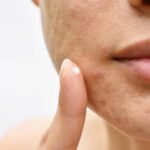Understanding Skin Conditions at Any Age: A Guide for Apollo Dermatology Patients
Skin is the largest organ of the body, and it is constantly exposed to various internal and external factors. These factors can influence the onset of skin conditions at any stage of life. Here are a few key reasons why skin issues can arise later in life:
- Hormonal Changes: As we age, our bodies undergo various hormonal changes. For example, fluctuations in hormones during pregnancy, menopause, or even stress can trigger skin conditions like acne, rosacea, or eczema.
- Environmental Factors: Prolonged exposure to the sun, pollution, and harsh weather conditions can damage the skin over time, leading to issues such as hyperpigmentation, wrinkles, and even skin cancer.
- Lifestyle Choices: Diet, stress levels, sleep patterns, and overall lifestyle can significantly impact skin health. A sudden change in any of these areas can trigger new skin problems.
- Genetics: Some skin conditions, like psoriasis or eczema, have a genetic component. Even if you didn’t experience symptoms earlier in life, they can manifest due to genetic predisposition combined with environmental triggers.
- Immune System Changes: As we age, our immune system can become less effective. This change can lead to the development of skin conditions such as shingles or more frequent and severe outbreaks of existing conditions.
Common Skin Conditions in Adulthood
Here are a few skin conditions that can appear or persist in adulthood:
- Acne: While commonly associated with adolescence, adult acne is a prevalent issue. It can be triggered by hormonal changes, stress, and lifestyle factors.
- Rosacea: Characterized by redness and visible blood vessels, rosacea typically appears in middle-aged adults. Triggers include sun exposure, hot beverages, and spicy foods.
- Eczema: This chronic condition can develop at any age, causing dry, itchy, and inflamed skin. It often requires long-term management.
- Psoriasis: An autoimmune condition that results in red, scaly patches on the skin. Psoriasis can flare up at any time, often influenced by stress, medications, or infections.
- Hyperpigmentation: Dark spots and patches can develop due to sun exposure, hormonal changes, or inflammation. These are common in aging skin.
Managing Skin Conditions
If you’re experiencing a new or chronic skin condition, here are some steps you can take to manage it effectively:
- Consult a Dermatologist: A professional evaluation is crucial for accurate diagnosis and treatment. At Apollo Dermatology, we offer personalized care tailored to your skin’s needs.
- Skincare Routine: Establish a consistent skincare routine using products suitable for your skin type and condition. This routine should include gentle cleansing, moisturizing, and sun protection.
- Healthy Lifestyle: Maintain a balanced diet, stay hydrated, get adequate sleep, and manage stress through activities like yoga or meditation.
- Protect Your Skin: Use sunscreen daily, wear protective clothing, and avoid excessive sun exposure to prevent further skin damage.
- Follow Treatment Plans: Adhere to prescribed treatments and follow-up appointments. Chronic conditions often require ongoing management to keep symptoms under control.
Conclusion
Remember, developing a skin condition later in life is not uncommon. Understanding that these issues can arise at any age and can be chronic is the first step toward effective management. At Apollo Dermatology, we are here to support you with expert care and guidance. Don’t hesitate to reach out if you have concerns about your skin health. Together, we can achieve healthy, radiant skin at any stage of life.
Thank you for choosing Apollo Dermatology for your dermatological needs. We look forward to continuing to serve you with the highest level of care.
Warm Regards,
The Apollo Dermatology Team
















